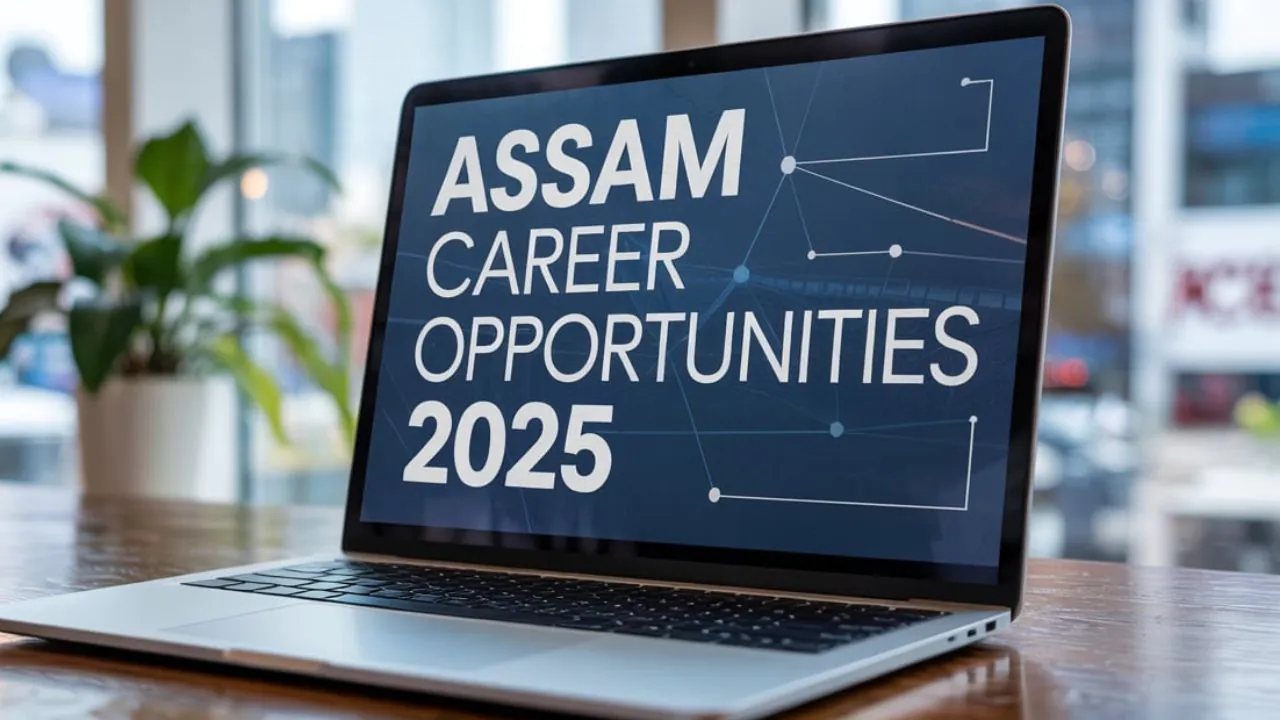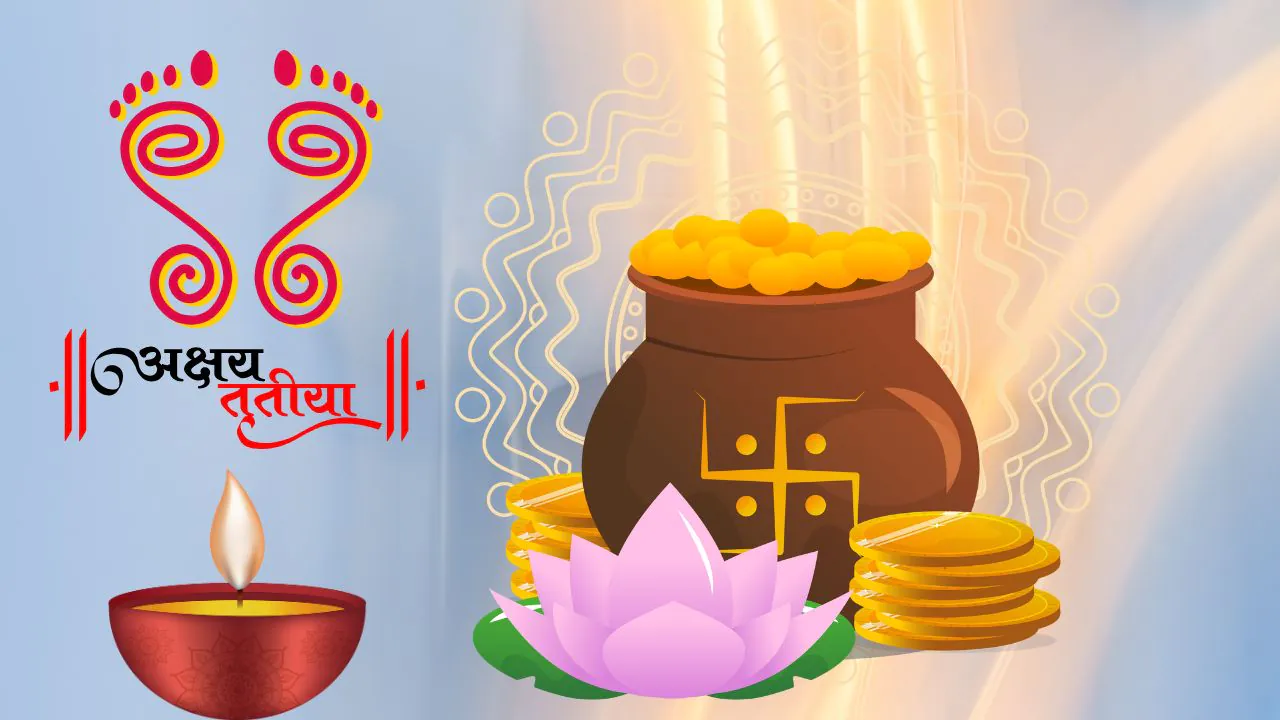The moment your results are out can bring a mix of emotions – excitement, nervousness, or maybe even both. Whether celebrating your hard work or figuring out the next steps, this is an important phase in your life. And, of course, the big question on your mind is, “What should I do next?”
Don’t worry; we’ve got you covered. This guide is here to help you navigate your options after Class 10th or 12th. From choosing the right academic stream to exploring vocational courses or professional degrees, we’ll break it down for you in a simple, structured way.
The future might feel overwhelming, but remember – it’s also the start of an exciting new chapter. Let’s take it one step at a time.
Take a Moment to Reflect
Before making big decisions, take a moment to pause, breathe, and appreciate the effort you’ve put in, no matter the outcome. Reflection gives you the space to understand your strengths, values, and interests—things we often ignore in the rush to choose a stream or course.
A little time for mindfulness can go a long way in helping you figure out your next steps with a clear mind instead of giving in to peer pressure or unnecessary panic.
Explore Your Interests and Strengths
Your results might reflect your academic performance, but what truly excites you? Marks are just a guide—they don’t define you. Think about the subjects or activities you genuinely love and feel confident in.
Take some time to reflect. You can try self-assessment tools, aptitude tests, or casual chats with your mentors, teachers, or career counsellors. These conversations can help you discover a direction that matches your skills and dreams.
Explore All Available Options
For Class 10th Students
After Class 10, it’s time to make one of the most important decisions of your life—choosing the right path for your future. Whether you want to continue with higher secondary education or explore hands-on skill development, this decision will shape your career and personal growth. Here are the main options you can consider:
Option 1: Picking the Right Stream
Choosing the right stream is key if you plan to continue with higher secondary education. Here’s a breakdown to help you decide:
- Science
- Love subjects like maths, physics, chemistry, or biology? Science might be the perfect fit.
- It’s a versatile option that can lead to careers in engineering, medicine, research, biotechnology, and tech-related fields.
- Core subjects include physics, chemistry, biology, and maths, with optional subjects like computer science or environmental studies.
- Science demands dedication and analytical thinking, but opens doors to some of the most sought-after professional courses in India and abroad.
- Commerce
- Interested in business, finance, or economics? Commerce is your go-to stream.
- It lays the foundation for careers in banking, chartered accountancy, investment management, business administration, or even starting your own business.
- Key subjects are accountancy, business studies, economics, and sometimes maths (optional).
- If you’re fascinated by how the corporate world works or dream of becoming an entrepreneur, this stream is for you.
- Arts/Humanities
- The arts stream is a great choice if you’re passionate about history, literature, psychology, or political Science.
- Career options range from journalism, law, and education to mass communication, social work, and civil services.
- Humanities encourage creativity and critical thinking, making it ideal for those who love exploring human behaviour, culture, and society.
Option 2: Vocational Courses and Skill-Based Training
If traditional academics aren’t your thing, don’t worry—vocational education could be your right path. These courses focus on practical, hands-on skills that prepare you for specific jobs or industries.
- Popular vocational fields include IT, nursing, fashion design, automotive repair, tourism, and hospitality. These fields are in high demand and offer students a wide range of career paths to choose from based on their interests and skills. They also provide diverse opportunities for growth and specialisation.
- Vocational training is ideal for students who want to enter the workforce early or learn better through hands-on experience rather than traditional theoretical methods. These programs focus on practical skills, ensuring students are job-ready as soon as they complete their training.
- These programs often come with certifications or diplomas that enhance employability and are recognised both in India and internationally, opening doors to global career opportunities. Employers value the specific skills and qualifications gained through vocational training, as they align directly with industry needs.
- Vocational training programs are widely accessible at polytechnic institutes, specialised vocational centres, and even some schools, making it easier for students from different backgrounds to enrol. Some programs may offer internships or on-the-job training, further strengthening practical knowledge and industry exposure.
Option 3: Diploma Courses
Diploma courses can be a fantastic alternative to traditional streams for students looking to specialise in a particular skill or trade.
- Diplomas include graphic design, hotel management, web development, fashion technology, and animation.
- They’re shorter than degree programs and can get you job-ready faster.
- Entrance exams for diplomas are often easier, making them perfect for those who want a head start in their careers.
- Many diplomas also include internships, giving you real-world exposure while you study.
- Diplomas are usually less expensive than traditional degrees, making them a more affordable option for many students.
Diploma courses have evolved to meet the demands of various industries and job markets. Due to technological advancements and changes in skill requirements, diploma programs now offer a wider range of subjects and specialisations.
One major benefit of pursuing a diploma course is its shorter duration than traditional degree programs. This allows individuals to enter the workforce sooner and gain practical skills highly sought after by employers. Additionally, entrance exams for diploma courses tend to be less competitive, making it easier for individuals to secure admission and begin their studies.
Another advantage of diploma courses is that they often include
Wrapping It Up
This is an important stage in your life, so consider your interests, strengths, and career goals. Whether you choose a traditional stream, vocational training, or diploma course, pick a path that aligns with what you love and want to achieve. There’s no one-size-fits-all answer here—what matters is finding what works best for you. Take your time, explore, and move forward with confidence!
For Class 12th Students
Graduating from Class 12 is a big milestone and opens opportunities to shape your future. Your choices will play a key role in your career and personal growth, so it’s important to explore all your options carefully. Here’s an easy guide to help you decide on your next step:
Think Beyond Academics
Option 1: Pursue a Bachelor’s Degree
A bachelor’s degree is one of the most popular choices after Class 12, offering a range of subjects depending on your stream and interests:
- Science: If you love subjects like Physics, Chemistry, or Biology, you can dive deeper into these areas or pursue tech-oriented degrees like B.Tech. These programs can lead to research, engineering, healthcare, or technology careers.
- Commerce: Commerce students can explore degrees like B.Com., BBA, or economics, which can prepare them for careers in finance, business, or even entrepreneurship.
- Humanities: If arts, journalism, social sciences, or creative fields excite you, humanities programs provide intellectual and creative growth, opening doors to media, public service, design, teaching, and more.
Research different universities and programs to find what suits your goals. Many institutions now offer interdisciplinary courses so that you can combine your interests across multiple fields.
Academic achievements are important, but don’t underestimate the value of building other skills.
Option 2: Enrol in Professional Courses
If you already know what you want to do, professional courses are an excellent way to build expertise and target a specific career. Here are some popular options:
- Engineering: Crack exams like JEE to get into top engineering colleges.
- Communication and Soft Skills: These are vital for any career path.
- Technology Skills: Learning coding, web design, or digital marketing is always advantageous.
- Extracurricular Strengths: Sports, music, photography, or writing can lead to unconventional yet fulfilling careers.
- Medicine: Clear NEET to pursue MBBS or other medical paths.
- Law: Appear for CLAT to join leading law schools in the country.
- Design: Have a creative streak? Exams like NID or NIFT can lead you to design programs.
- Management: Integrated management courses (IPM) after Class 12 are great if you’re interested in business.
These courses usually have entrance exams, so planning well in advance is important. With the right preparation and guidance, you can ace these exams. Coaching classes or online resources can help you stay on track.
Backup Plans are Smart, Not Negative
Option 3: Crack Entrance Exams for Top Colleges
For those dreaming of prestigious universities, entrance exams are the gateway.
- Institutions like IITs, AIIMS, Delhi University, and NLUs have competitive admission exams in India.
- If you’re eyeing colleges abroad, exams like SAT, ACT, IELTS, or TOEFL are key.
Start early! Research the exam patterns, application deadlines, and prep materials. Don’t forget to check out scholarships and financial aid options that can make your dream college more affordable.
Always have a Plan B. Life doesn’t always turn out as planned. If you don’t qualify for competitive exams or miss out on your first-choice program, ensure alternatives are waiting. This could mean pursuing a related subject, attempting the exam again, or exploring certifications to boost your eligibility.
Option 4: Take a Gap Year
What should I do next? A gap year can help you discover your interests while gaining valuable experiences. Here’s how you can make the most of it:
- Internships: Work in an industry that excites you to get hands-on experience and build a network.
- Skill-building: Take up online courses in areas like coding, design, public speaking, or even learning a new language.
- Personal Projects: Use this time to volunteer, travel, or work on something you’re passionate about.
The key is to have a clear plan for your gap year—set goals and track your progress so that you stay motivated and productive.
Avoid Common Mistakes
This is an exciting phase of your life, filled with endless opportunities and possibilities. It’s completely natural to feel a mix of excitement and uncertainty right now. But remember, there’s no need to rush. Take your time to think about what truly aligns with your interests, values, and long-term goals. This is your journey, and choosing a path that feels right for you is important.
If you’re feeling stuck or unsure, don’t hesitate to contact mentors, parents, or even career counsellors—they can offer valuable advice and support while you figure things out. It’s perfectly okay to take your time to explore your options. After all, this is just the start, and success doesn’t have a one-size-fits-all formula.
Here are a few things to keep in mind while navigating this decision:
- Don’t just follow the crowd: It’s tempting to go with what ‘everyone else is doing,’ whether choosing a career, a course, or a specific path. But your decision should reflect what you truly want, not what’s trending or expected. Trust your instincts—they know better than the crowd.
- Don’t chase money over passion: A high-paying job might sound great, but choosing a career just for the salary without genuine interest could leave you feeling unfulfilled in the long run. Focus on what excites you and sparks your curiosity—you’re more likely to succeed when you’re passionate about your work.
- Take care of your mental health: This post-exam period can be overwhelming. The pressure of expectations and big decisions is real. Remember, feeling stressed or anxious is completely normal, and it’s okay to talk about it. Share your feelings with loved ones or seek professional help if needed. Your mental health matters just as much as your career choices—don’t ignore it.
Take a deep breath, trust yourself, and remind yourself that you have the time and ability to make the right decision. This is just the beginning of an incredible journey, so give yourself some grace. You’ve got this!
Guidance for Parents and Educators
Parents and educators are vital in guiding students to make informed, balanced decisions about their future. By providing the right support and resources, you can empower them to navigate this critical phase of their lives with confidence and clarity. Here’s how you can assist them effectively:
1. Be Supportive, Not Overbearing
Instead of imposing your expectations or trying to steer them in a specific direction, focus on being a supportive listener. Engage in open, judgment-free discussions about their passions, interests, and career aspirations. Please encourage them to think critically about what excites them and aligns with their strengths rather than pressuring them into a predetermined path.
2. Offer Resources and Insights
Equip students with valuable tools and opportunities to explore different career options. This could include providing information about career counselling services, attending industry-specific workshops, or encouraging them to participate in webinars that showcase potential career paths. Exposure to diverse fields helps students make more informed decisions and understand the possibilities available to them.
3. Help Build Confidence
Reassure students that feeling uncertain is a normal part of the decision-making process. Remind them that there’s no one-size-fits-all approach to success and that their journey may include exploration and trial and error. By supporting them through challenges and celebrating their progress, you can help them feel more confident about making choices that reflect their true ambitions and values.
Your guidance can significantly impact a student’s self-belief and ability to pursue a fulfilling future.
Stay Positive and Open-Minded
Your path after Class 10th or 12th is just the beginning of a long and fulfilling journey. This time is an opportunity to discover what excites and inspires you. Stay curious, patient, and committed to growing every day.
Remember, success isn’t defined by one result. It’s a combination of hard work, resilience, and passion. Your potential is limitless, and the world is full of opportunities.
For more guidance on choosing the right path and exploring career options, you can visit the National Career Service. This platform provides valuable resources and expert advice to help you make informed decisions about your future.
FAQs
Q1. What courses can I pursue after Class 10th?
Ans. After Class 10th, you can pursue streams like Science, Commerce, and Arts in higher secondary education. Additionally, vocational courses or polytechnic diplomas in fields like engineering, fashion design, or hospitality are great options.
Q2. What are the best career options after Class 12th?
Ans. The best career options depend on your chosen stream. For Science, careers in engineering, medicine, and research are popular. Commerce students can explore finance, business management, or accountancy. Arts students may pursue literature, fine arts, or social sciences careers.
Q3. How do I decide which stream to choose?
Ans. Consider your interests, strengths, and long-term career goals. You can also take aptitude tests or seek guidance from career counsellors to make an informed decision.
Q4. Can I change my stream after choosing it in Class 11th?
Ans. Yes, you can change your stream in certain schools or educational boards, but this decision should be made early and carefully, as it may impact your academic progress.
Q5. Are entrance exams necessary for admission to all undergraduate courses?
Ans. No, not all courses require entrance exams. Some programs admit students based on Class 12th board exam results, while others may require specific entrance tests for admission.
Q6. What should I do if I am unsure about my career choice?
Ans. Explore various fields, talk to professionals, gain relevant experience through internships, and take guidance from mentors or career counsellors to identify your interests.
Q7. How do I manage stress during board exams and entrance tests?
Ans. Create a realistic study plan, take regular breaks, practice mindfulness, and ensure you eat healthy and get enough sleep. Seek support from family or friends if you feel overwhelmed.
Q8. Are vocational courses a good choice after Class 10th or 12th?
Ans. Yes, vocational courses provide hands-on training and practical skills, making them an excellent choice for students who wish to join specific industries quickly.
Q9. Can I pursue higher studies abroad after Class 12th?
Ans. Yes, many universities worldwide offer undergraduate programs for international students. You must meet language requirements like TOEFL or IELTS and follow their application processes.
Q10. Is commerce without mathematics a good option?
Ans. Commerce without mathematics is a viable option if you do not plan to pursue careers or higher studies that require quantitative skills, such as chartered accountancy or economics.
Q11. How do scholarships work for higher education?
Ans. Scholarships can be merit-based, need-based, or specific to fields of study. Research available scholarships for your chosen stream or university and apply with the required documentation.
Q12. What is the scope of pursuing a career in the Arts or Humanities?
Ans. A career in the Arts or Humanities is rewarding, with options in journalism, law, literature, design, social work, and education, among other fields.
Q13. How can I prepare for competitive exams like JEE or NEET?
Ans. Start with a strong understanding of concepts, practice the previous year’s questions, enrol in coaching if required, and maintain a disciplined study schedule.
Q14. Should I take a gap year after Class 12th?
Ans. A gap year is beneficial if you use it constructively to gain experience, learn new skills, or prepare for entrance exams. However, plan it carefully to avoid falling behind.
Q15. What other options are available apart from traditional career paths?
Ans. Emerging fields like digital marketing, data analytics, artificial intelligence, filmmaking, and gaming design offer creative and exciting career opportunities. You can also consider entrepreneurship if you have innovative ideas.
You may read this: The Inspiring Story of YouTuber Sourav Joshi









